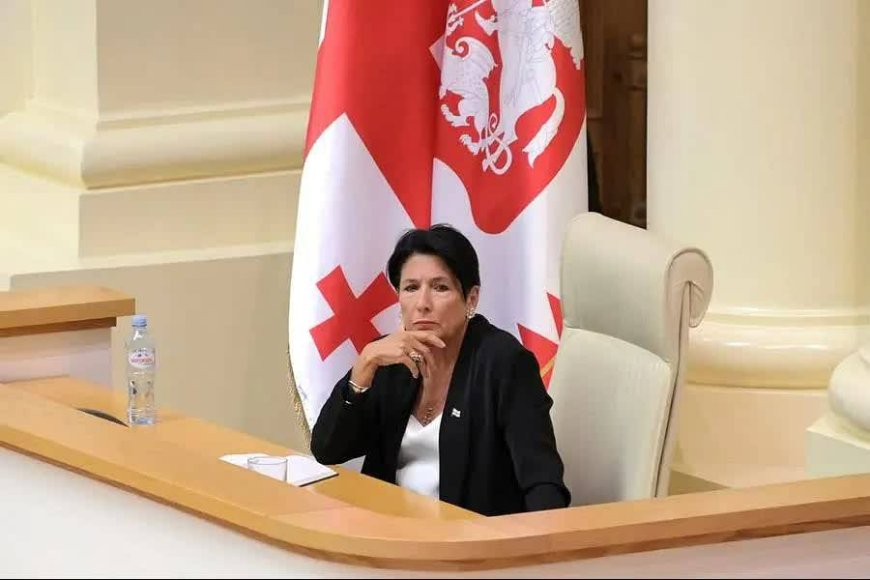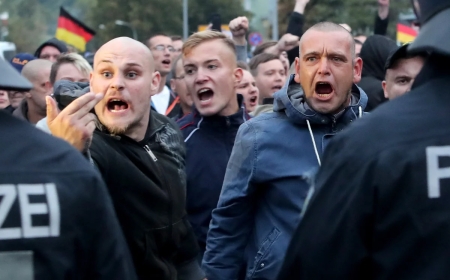The Complex Dilemma of Georgia's European Aspirations
Amidst the escalating Russia-Ukraine conflict, three nations - Georgia, Ukraine, and Moldova - have expressed their desire to join the European Union (EU). While Ukraine and Moldova have been granted candidate status, Georgia has faced more stringent conditions. The European Union has demanded significant reforms, including an overhaul of the judicial system, media structure, and a reduction in the influence of oligarchs. In response, President Salome Zourabichvili embarked on a lobbying campaign, engaging with Brussels, Berlin, and Paris, in an attempt to rally European leaders behind Tbilisi’s EU membership bid.

Remarkably, this strategy has become the epicenter of President Zourabichvili’s arduous efforts with the ruling party, the Georgian Dream. It is crucial to note that Mrs. Zourabichvili assumed the presidency in 2018 with the backing of the very same party. From the outset, she sought to assert her independent political role, exercising her veto power to challenge laws that did not align with her pro-EU vision. This divergence of interests became the catalyst for a growing divide between President Zourabichvili and Mr. Irakli Kobakhidze, the leader of the ruling party.
Unprecedentedly, these political schisms culminated in an impeachment attempt against the president, marking a significant turning point in Georgian history. However, the impeachment required the support of 100 members of parliament, and only 71 voted in favor, resulting in its failure. Despite this tumultuous ordeal, President Zourabichvili beseeched the EU not to abandon Georgia, urging the EU officials to continue working towards Georgia’s Europeanization.
On the other hand, it appears that European leaders, recognizing Georgia's strategic importance on the Black Sea and its proximity to Russia, view its potential membership as a valuable asset.
But what lies at the heart of these differences?
The crux of the dispute between the Georgian Dream and the opposition revolves around a pivotal term: national interest. Despite approximately 80% of Georgians favoring EU membership, the government remains hesitant, citing unreasonable demands from Brussels and the fear of provoking war with Russia.
The Georgian government contends that the EU seeks to exert pressure on Russia, employing Georgia as a second front in any potential conflict. Based on this rationale, Georgia maintains a level of cooperation with Russia and refrains from imposing sanctions on Moscow. Moreover, direct flights between the two nations persist.
Conversely, the opposition holds a divergent perspective. Criticizing the government for disregarding national interests and playing on Russia's turf, they argue that EU membership could pave the way for NATO integration, ensuring security and progress for the nation! The opposition movement accuses the government of employing conservative tactics, utilizing propaganda, and other means to instill fear in the people. They further assert that the government's actions mirror the Kremlin’s agendas, leading to the erosion of democracy and the weakening of civil institutions.
Undeniably, Georgia exhibits a Western-oriented outlook, with its populace yearning to be part of Western institutions. However, the genuine fear among Georgian political elites regarding the risks of war with the northern neighbor cannot be understated. Georgian statesmen consistently emphasize their efforts to prevent their nation from becoming a proxy battleground between the West and Russia.
Furthermore, it is crucial to recognize that this Black Sea country holds immense significance for both the West and Russia. As next year's elections loom closer, the Georgian government will confront substantial challenges. The existence of an anti-Western administration in Georgia would undoubtedly be against the interests of the United States, and thus, Washington will strive to thwart such a situation. Simultaneously, Russia perceives favorable conditions to expand its influence and will seize every opportunity possible.
Consequently, as we approach the 2024 state elections, it is expected that a deluge of misinformation, political maneuvering, economic debates, and moral posturing will engulf all parties involved. The Georgian people find themselves at a crossroads, facing the arduous task of discerning the right path forward. They must choose between the relative security of the status quo and an unknown future, where the trajectory of their country remains uncertain.













































